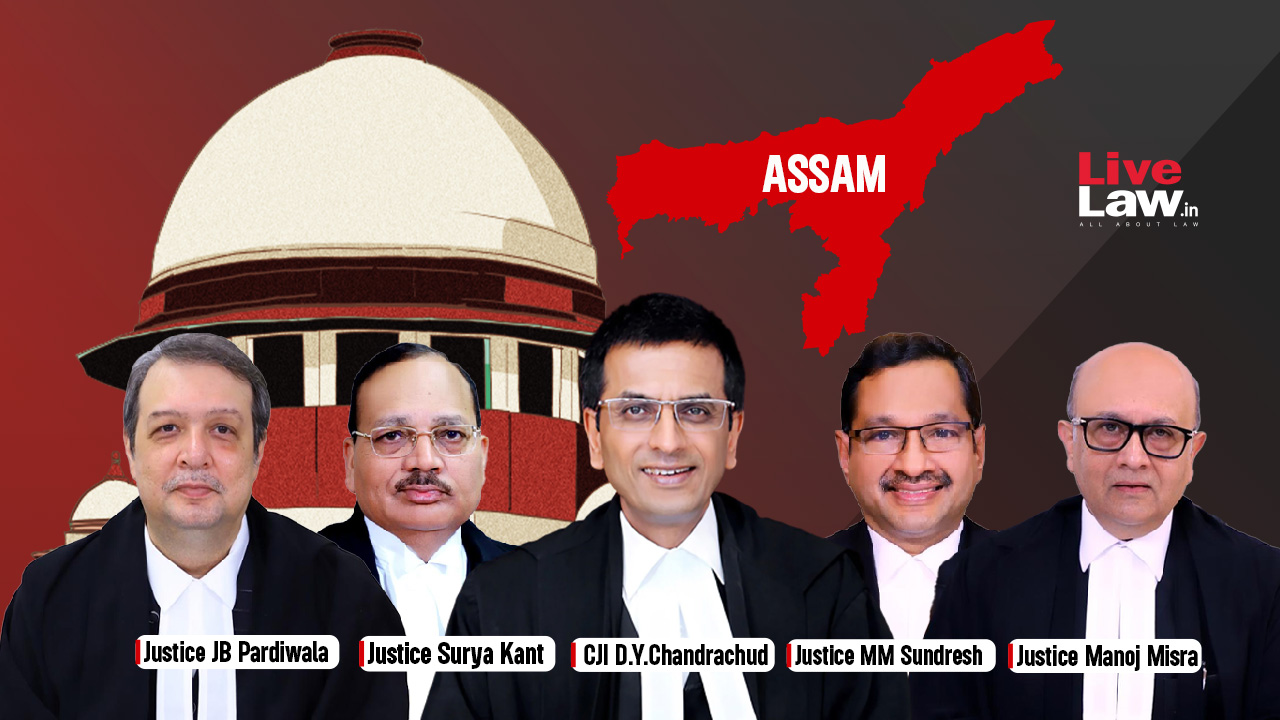 |
|
The Supreme Court of India delivered a significant judgment concerning the constitutional validity of Section 6A of the Citizenship Act 1955, which recognized the Assam Accord. The majority verdict, authored by Chief Justice of India D.Y. Chandrachud and Justice Surya Kant, concluded that Section 6A did not violate Article 14 of the Constitution, which guarantees equality before the law. However, Justice J.B. Pardiwala dissented, arguing otherwise.
The court's decision centered around the 'reasonable classification' test, a key principle of Article 14. The majority opinion reasoned that the legislative objective of Section 6A was to strike a balance between the humanitarian needs of migrants of Indian origin and the impact of migration on the economic and cultural needs of Indian states. The court acknowledged the unique circumstances of Assam, emphasizing the scale of migration and its impact on the state's resources and indigenous population compared to other states bordering Bangladesh.
The judgment further clarified that the cut-off date of March 24, 1971, prescribed under Section 6A, was also deemed reasonable. This date was chosen due to the Pakistani Army's launch of Operation Searchlight on March 26, 1971, aimed at suppressing the Bengali nationalist movement in East Pakistan. Migrants arriving before the operation were considered migrants of the Indian Partition, while those arriving after were seen as migrants of war, leading to different policy approaches. This distinction justified the chosen cut-off date, according to the court.
Justice Pardiwala, in his dissenting opinion, argued that Section 6A suffers from manifest arbitrariness. He pointed to procedural flaws in the Act, specifically the lack of a time limit for detecting and registering eligible immigrants. This, he argued, could lead to differential application of the law and unfair treatment of similarly situated individuals. Furthermore, he criticized the lack of a temporal limit, which he believed could perpetuate the presence of undocumented immigrants on the electoral rolls indefinitely, undermining the purpose of the Act.
The Supreme Court's decision upholding Section 6A of the Citizenship Act 1955 is likely to have significant implications for the ongoing debate on immigration and citizenship in India. While the majority opinion recognized the need for a balanced approach to address the humanitarian needs of migrants while protecting the interests of states, the dissenting opinion highlights the potential for arbitrariness and procedural flaws in the legislation. It remains to be seen how these legal interpretations will impact future policy decisions and legislative reforms.
